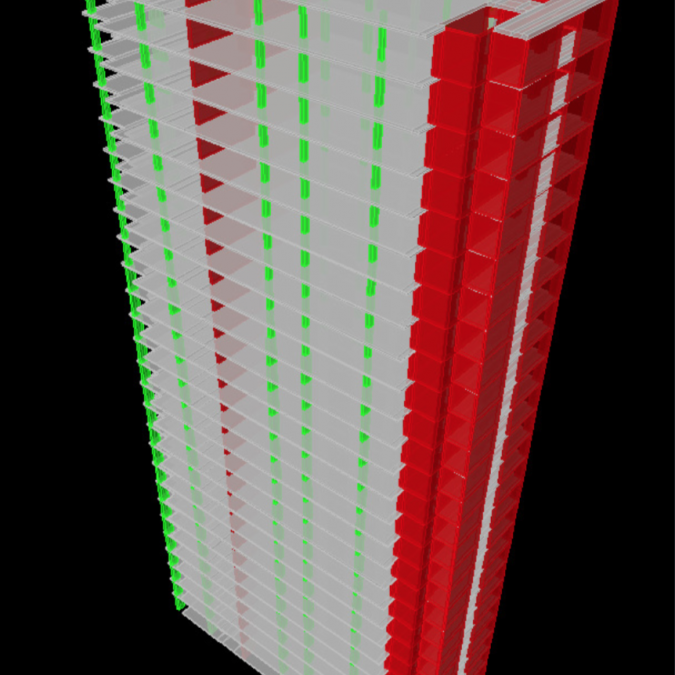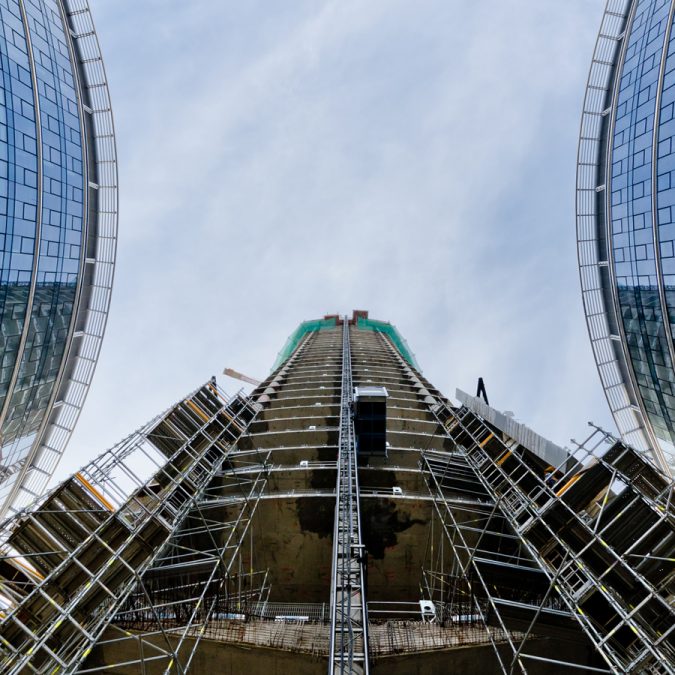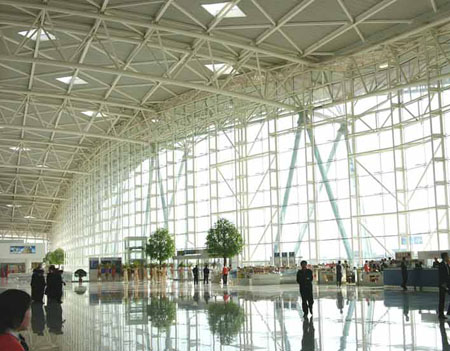Residential tower Water Street
Manchester
For a new 26-storey residential tower in Manchester the engineer was concerned about occupant comfort under dynamic wind effects. The Developer sought to quantify these effects without recourse to wind tunnel testing.
Booth-King Engineers consulted with Bakkala Consulting Engineers on the matter and, in light of intuitive design solutions developed by Booth-King, it was agreed that dynamic effects should not be a particular problem for the tower. Booth-King then retained Bakkala to quantify the dynamic performance.
Bakkala prepared a series of finite element models for sensitivity checking of dynamic properties of the frame. The results provided a basis for estimating floor acceleration and torsional velocity utilizing manual methods derived published literature and from recent research papers. Performance was quantified for serviceability under 1-year, 5-year and 10-year return period winds and was found to satisfy criteria recommended by the Council on Tall Buildings and Urban Habitat [CTBUH], and the International Standards Organization [ISO].
Concurrently, Bakkala estimated lateral building movements for the 50-year return period wind to verify that the frame performance would be compatible with movement limitations of other building systems, including the building facades.
The results of this specialist study provide confirmation to the design engineer of appropriate design measures to take to ensure a high level of performance and a safe building under frequenet and extreme wind conditions. It proved a cost-effective alternative to wind tunnel testing of this mid-rise residential tower.





